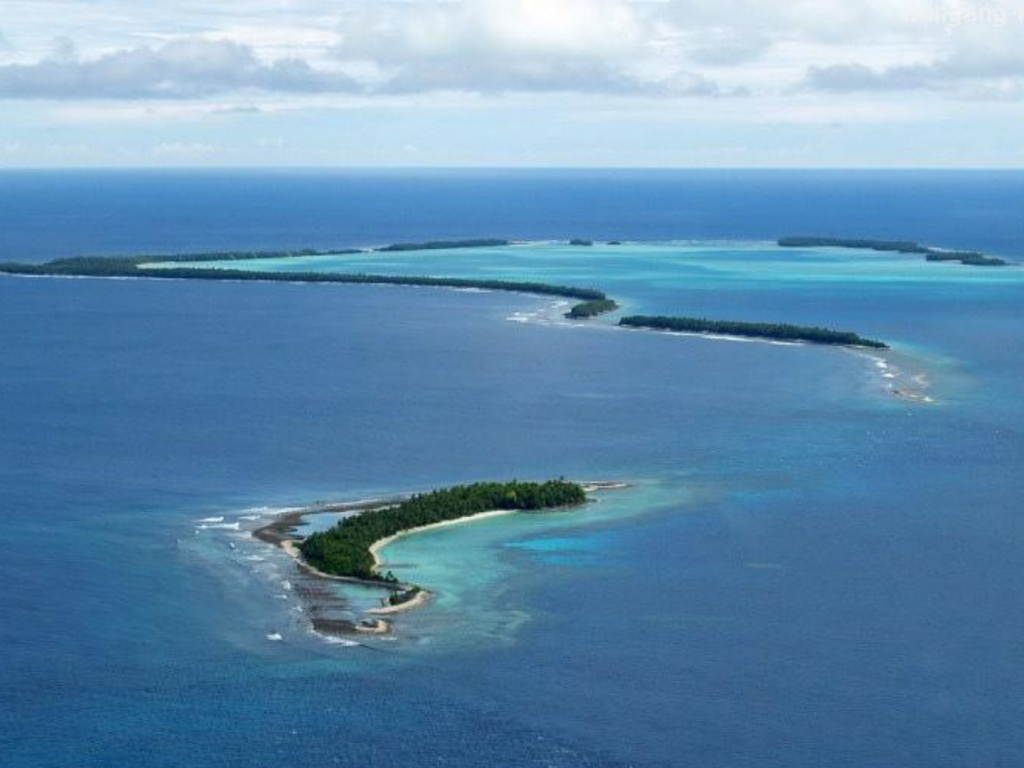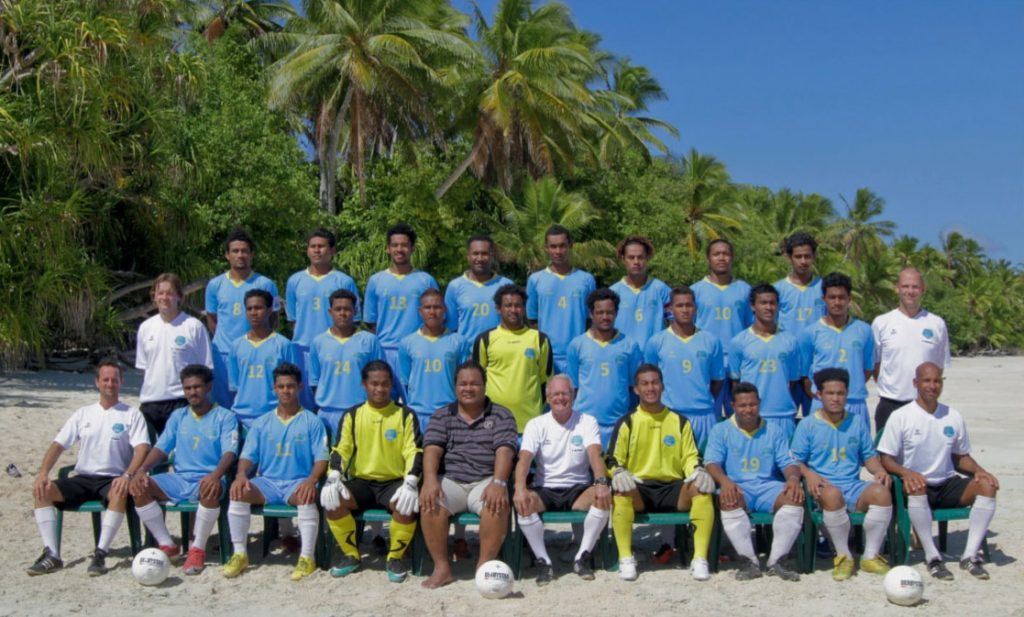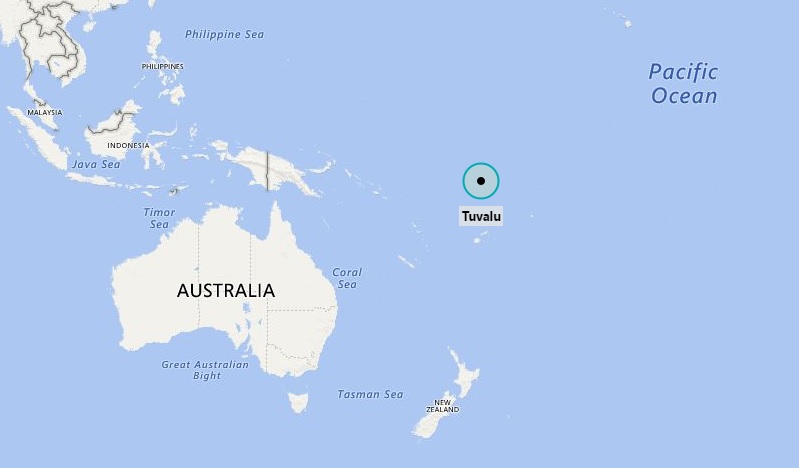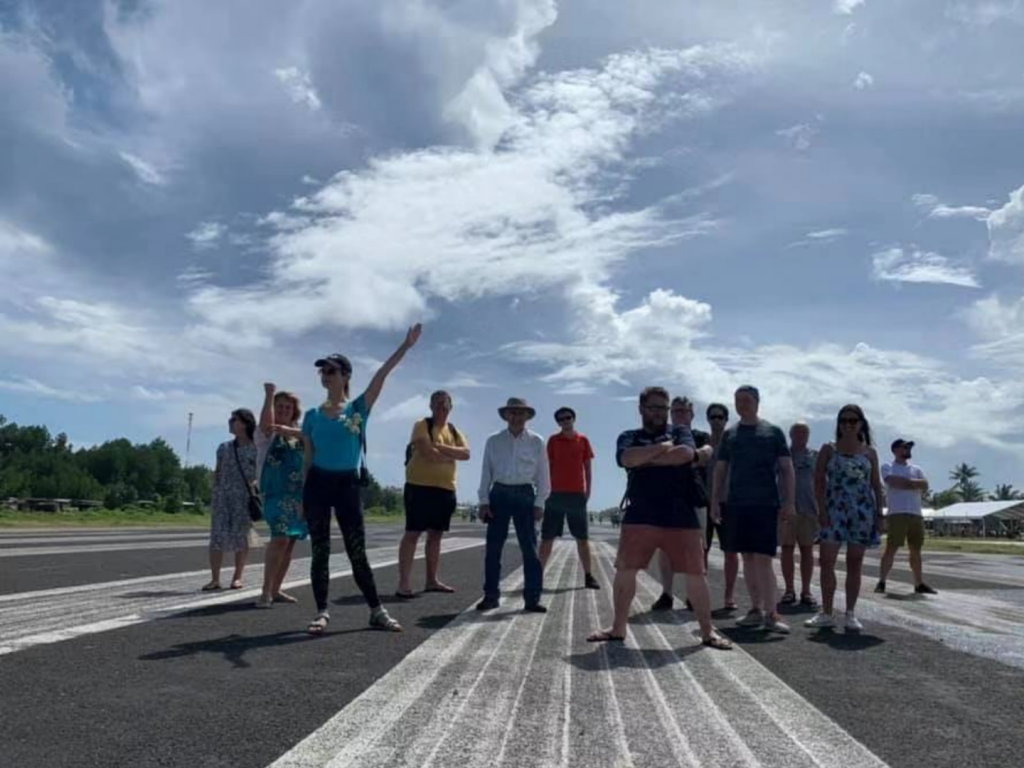While a ‘digital nation’ seems like a concept in a futuristic dystopian world, the first digital nation is likely sooner than you may think. Tuvalu, a micro nation in the Pacific Islands may in fact be the first digital nation – a nation with no physical territory.
In 2021, Tuvalu released a video statement of their Foreign Minister Simon Kofe knee-deep in the Tuvalu seas, giving a jarring speech about the effects of climate change in the Pacific. “We are sinking,” he warned about Tuvalus future. The video was encouragement for big emitter countries to do their part to stop the Pacific from suffering the effects of rising sea levels.
At the end of 2023, the Justice Minister of Tuvalu announced official plans to move Tuvalu into the metaverse, to safeguard the country from rising seas and create the first digital nation.

Background on Tuvalu
Tuvalu is a tiny nation and British colony in the Pacific home to roughly 12,000 inhabitants. Tuvalu has a strong sense of culture like many other Polynesian states in the region. Because the country is so small and hard to reach, tourism is extremely low and it is one of the world’s least visited countries.
The country comprises nine islands of differing sizes over 26 sq km. In 30 years, it is likely that the capital Funafuti will be submerged. By 2100, it is estimated 95% of the country will be underwater or prone to tidal damage. By the second half of the century, a lot of the scarce land in Tuvalu will be uninhabitable.
What Would a Digital Nation Look Like?
Tuvalu may have a lot of control over what that entails. After the unveiling of the plan late last year, Tuvaluans are set to begin moving mass information on history, geography and culture into the archives and to become the first digital nation. Also, production teams have been filming vastly wide categories on the island to preserve the memory of Tuvalu through film and media.

Can Tuvalu Continue to be a Country?
What defines a country or a nation state? Which measurement should you use?
The UN and international law measures a state from the Montevideo Convention that confirms a state needs the following factors to be considered one: a population, a territory, a functioning government and the ability to engage in diplomatic behavior. The problem with this definition? There are no measurements: there is no minimum population, no standards on what a functioning government would look like (as there are many governments of states today, that you could consider dysfunctional) and the ability to engage in diplomatic relations with other states, doesn’t indicate how many. Turkey is the only country to recognise the Republic of Northern Cyprus, but does that make the state legitimate?
There are many regions that arguably satisfy all the above criteria such as Kurdistan and Somaliland. Why are they not states?
Then of course, there is the issue of territory. A question that prior to 2021 was absent from the definition of statehood debate was “what if a state had a territory, and then lost it?”
This is the debate with Tuvalu, a country that has a population, territory, functioning government and engages in diplomatic relations. So would the country cease to exist if the territory did? Would first digital nation still be considered an actual country? Only time will tell.

What will happen to the people of Tuvalu?
There is an agreement in place between Australia and Tuvalu that offers a gradual migration of residents from Tuvalu to Australia, with a path to permanent residency. While most Tuvaluans (especially the youth) are scared and fearful of the future, the Tuvaluan government is ensuring active policy development, such as using the metaverse, to evolve with the rising sea levels.
Tuvalu has a special place amongst YPT as one of our favourite unique countries. If you would like to visit Tuvalu, you can do so on our Least Visited Countries Tour.
| Group | Start Date | End Date | Days | Price (USD) | Single Supplement (USD) |
| Group 1: Palau, Micronesia & Marshall Islands | July 12th | July 20th | 8 Days | $2795 | $640 |
| Group 2: Kiribati, Nauru & Fiji, | July 20th | July 27th | 7 Days | $3495 | $560 |
| Group 3: Tuvalu, Samoa & Tonga | July 27th | August 3rd | 8 Days | $4795 | $560 |
| Group 4: Vanuatu & Solomon Islands | August 3rd | August 9th | 7 Days | $2245 | $400 |
| ALL GROUPS | July 12th | August 9th | 28 Days | $11995 | $2160 |






